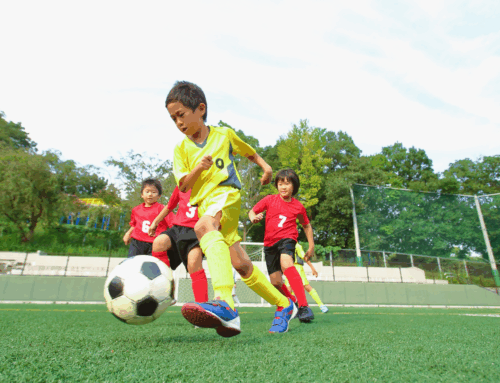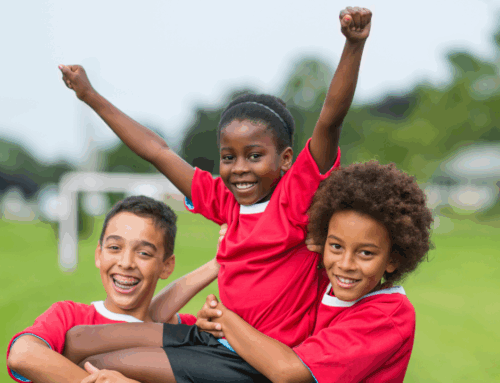Get our exclusive report. Download the iSport360 Club Switching Report Here – For Club Admins, Rec Leaders and Coaches.
Sports Specialization: Early Specialization vs. Balanced Development
Navigating the decision of when youth sports athletes should specialize in a single sport can be complex and nuanced. Early specialization can offer advantages in skill development and competitive edge, while a diversified sports experience has its own benefits for overall growth. Let’s explore the considerations for when youth sports athletes should specialize in a sport and why a balanced approach might be beneficial.
Early Specialization:
- Passion and Interest: If a young athlete shows a genuine passion and interest for a specific sport, it could be an indication that they are ready for early specialization. Enthusiasm often fuels dedication and commitment, which are essential for excelling in any sport. We like to say that if an athlete can start their own engine, they are ready.
- Talent and Potential: Coaches and parents might recognize exceptional talent and potential in a certain sport. Early specialization can provide a focused platform to develop and maximize these skills to a high level.
- Performance Goals: If an athlete has clear and ambitious performance goals, early specialization might be a strategic choice. Focusing on one sport can allow them to refine their skills and reach specific milestones.
Balanced Development:
- Physical Development: Participating in a variety of sports during childhood and adolescence promotes a well-rounded physical development. Cross-training engages different muscle groups and movement patterns, reducing the risk of overuse injuries associated with early specialization.
- Mental and Emotional Well-Being: Experiencing a range of sports helps prevent burnout and the associated stress that can come with early specialization. Young athletes can have the opportunity to explore different interests, make friends, and maintain a healthier perspective on sports.
- Skill Transfer: Skills learned in one sport can often be transferred to another. For example, agility and coordination gained in soccer can benefit a young athlete in basketball. A broader skill set can enhance adaptability in various athletic contexts.
When to Consider Specialization:
- Age and Development Stage: Most experts recommend delaying specialization until a child has reached their early teens, around 12 or 13 years old. Prior to this age, a diverse sports experience is generally encouraged to build fundamental movement skills.
- Consulting Experts: Coaches, trainers, and medical professionals can provide valuable insights. They can assess an athlete’s physical development, potential, and readiness for specialization.
- Informed Decision: The decision to specialize should be a joint one involving the young athlete, parents, coaches, and possibly even the input of sports psychologists. A well-informed decision is more likely to lead to a positive outcome.
Balanced Approach for Success:
- Foundation First: Instead of early specialization, focusing on building a strong foundation of general sports skills during childhood can set the stage for future success. These foundational skills can easily translate into specialized training later on.
- Late Adolescence: Specializing in a sport during late adolescence, around 15 to 17 years old, might offer a better balance. At this time, athletes have developed a broad base of skills and have a clearer understanding of their abilities and interests.
- Holistic Growth: Encouraging young athletes to engage in multiple sports until they find a true passion can lead to a more enjoyable and holistic sports journey. This approach fosters a love for sports in general and allows athletes to find a niche more organically.
The decision of when youth sports athletes should specialize in a sport is not a one-size-fits-all answer. Early specialization can have its advantages. But a balanced approach that emphasizes diverse sports experiences and general skill development should not be underestimated.
The best approach considers the athlete’s passion, potential, age, and developmental stage, along with the guidance of experts and a well-informed, decision-making process. Ultimately, the goal is to create a healthy, enjoyable, and successful sports journey that fosters both skill development and personal growth.
iSport360 is the only app that does it all for youth sports. For more information on what we do, click here.
About the author:
Amy Masters is a sports mom, coach and club administrator. She has been coaching youth sports for more than 10 years. She started Jr Lions Field Hockey. It is the youth recreation program for the Hunterdon County community growing it from 40 players in year 1 to 150 players by year 3. A few years later, she saw the love and competitiveness grow then started Omega Field Hockey Club serving NJ and PA players. Prior to coaching, she was a collegiate field hockey player for Lock Haven University. In her spare time (lol), she is head of marketing for iSport360, where she brings her love of sports to a bigger audience.
Learn more or request a demo of our youth sports software that is helping teams improve communication, organization and player development.
September 4, 2023





